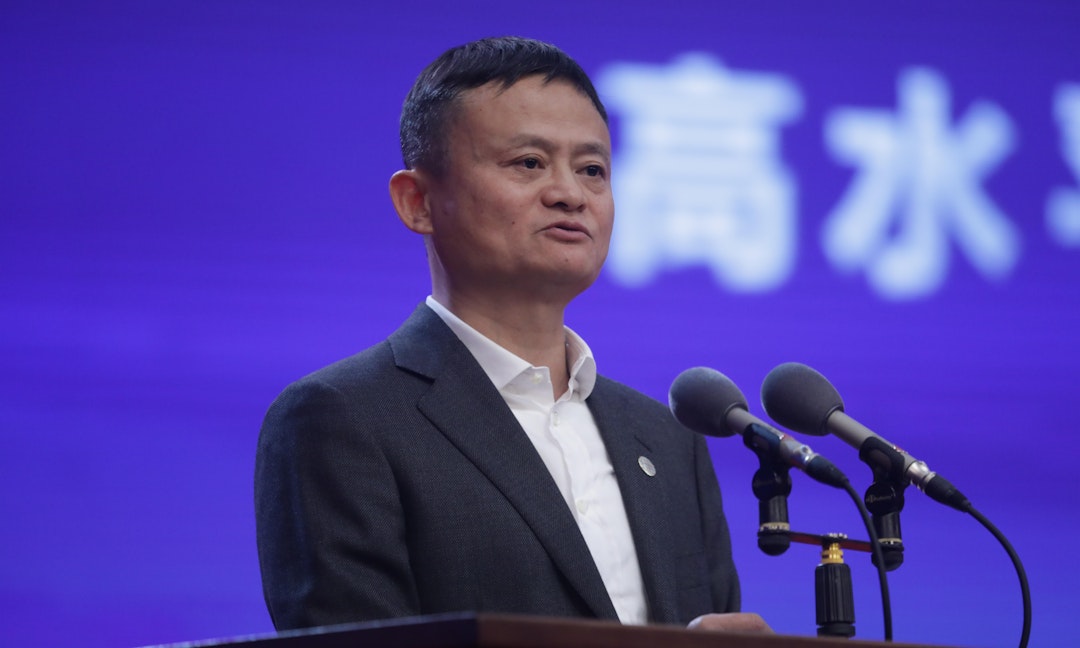
As China lifts Covid-19 restrictions and returns to normalcy, prospects for private business in the post-Covid economic recovery remain uncertain. Despite former Vice Premier Liu He’s reiteration of the central government’s adherence to market principles at the World Economic Forum in January 2023, there are mixed messages about the Party’s stance towards the private tech sector.
The detention of Bao Fan, Chairman and CEO of investment bank China Renaissance Holdings, in February sent shockwaves through international markets and among Chinese tech entrepreneurs. Bao was widely regarded as the country’s top dealmaker, whose company presided over several high-profile domestic tech deals.
On the other hand, Alibaba’s Jack Ma made a surprise reappearance in China in March, after traveling abroad for over a year. In a seemingly friendly gesture to the private sector, the Cyberspace Administration of China announced a campaign to crack down on false publicly circulated information which damages the reputation of private enterprises and entrepreneurs. But all of this does not suffice in restoring confidence in investors and businesses about a rollback of regulatory scrutiny of private tech companies.
To some, Bao’s detention indicates a continuation of Beijing’s heavy-handed approach to the country’s rising entrepreneurs that began with scuttling an initial public offering (IPO) for Ant Group, the e-payments platform founded by Jack Ma, in late 2020. This continued with tightened regulation over data security and anti-monopoly practices involving tech companies.
The Party’s stance and policy towards the tech sector — or more precisely, technology platforms and their partners — should be read in light of the multiple, often competing, challenges that the Party faces in governing modern China.
Chinese big tech and innovative entrepreneurs have contributed significantly to China’s transformation into a digital economy. At the same time, their rapid growth in size and wealth, as well as their evolving business models, have generated new challenges and instabilities.
Fintech regulation is one of these contradictions. Despite the merits of financial technology, excessive microlending without adequate security could create a financial bubble, posing systemic risk to the national financial system. Fintech companies like Ant have been forced to restructure and made subject to similar regulatory rules that govern other lending institutions.
Another area of contest is in the competition for talent across various fields related to technology development. The 14th Five-year Plan (2021–2025) spelled out ambitious objectives to turn China into a manufacturing powerhouse and a leader in emerging industries. Competitive renumeration packages and unparalleled career prospects offered by leading platform companies, as well as the perceived invulnerability of the industry, had drawn many bright, young minds into technology-related business fields. This has changed since the government’s policy shift in 2020.
China now needs people to contribute to scientific and technological self-sufficiency in areas such as semiconductor development, robotics, and climate change. The state’s clampdown on the business tech sector is thought to have had the effect of pushing people and resources into other areas — such as materials science, industrial machinery, and biotechnology — deemed important to China’s overall technological capacity.
The Party’s tough treatment of some tech entrepreneurs could also have been connected to power struggles within the Party itself. Some key investors behind Ant Group’s IPO were known to be linked to top officials and elites with strong ties to former leader Jiang Zemin. The tech sector may have become the site of a contest for political power. It is unclear with whom Bao is associated inside political circles, but he may have been caught up in a broader political struggle.
Party leaders will certainly continue to rely on China’s tech giants and their innovation to drive the economy. But ensuring that data is managed and used to the benefit of the Party as well as the public, not just private actors, remains a key logic in the Chinese Communist Party’s governance.
The announcement at the “Two Sessions” of the establishment of a National Data Bureau is Beijing’s latest step to exploit the country’s massive data trove. This will allow institutionalization of the management and control of data, while also facilitating circulation of both public and private data resources to promote economic and social development.
Setting up the new National Data Bureau under the National Development and Reform Commission will give focus to implementing policies that help drive digital and cutting-edge industries. The bureau could potentially become a driver of “Digital China,” after years of slow development because of the pandemic and regulatory scrutiny.
Given the Party’s overriding priorities of rebuilding a strong domestic economy and maintaining robust supply chains against external threats, it is unlikely to embark on an extensive campaign like it did in 2020 and 2021 to rein in technology platforms. That would undermine an important engine of growth and investor confidence, adding pressures to government finances.
One can still expect uncertainties over how the Party treats individual private businesses. This is especially so when China’s political leaders deem it necessary to prioritize certain objectives, such as political control and maintaining social stability, over other priorities including economic recovery and growth.
Yvette To is a Postdoctoral Fellow in the Department of Public and International Affairs at the City University of Hong Kong.
The News Lens has been authorized to republish this article from the East Asia Forum. East Asia Forum is a platform for analysis and research on politics, economics, business, law, security, international relations and society relevant to public policy, centered on the Asia Pacific region.
READ NEXT: China Is Becoming More Reliant on the World
TNL Editor: Bryan Chou (@thenewslensintl)
If you enjoyed this article and want to receive more story updates in your news feed, please be sure to follow our Facebook.







